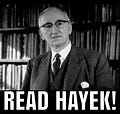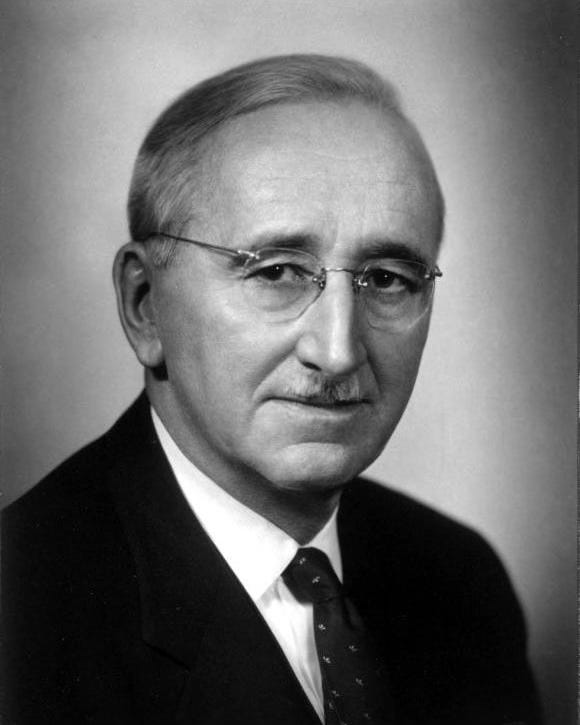How Hayek Helps
CEOs and Senior Leaders Should Embrace Hayek’s Insights on Decentralized Knowledge
No matter what industry you’re in, business is volatile, uncertain, complex, and ambiguous (VUCA). CEOs and senior leaders must gain and maintain every competitive advantage possible. To become more effective, leaders need to read and understand one of F.A. Hayek’s core works that we have discussed before: “The Use of Knowledge In Society.”1 Understanding Hayek’s ideas on decentralized knowledge will sharpen the edge of any leader operating in VUCA markets. When these insights are applied, they drive growth and boost profitability. These concepts can transform you as a leader, and in turn your organization.
Effective Leaders Understand Decentralized Knowledge
“......the knowledge of the circumstances of which we must make use never exists in concentrated or integrated form but solely as the dispersed bits of incomplete and frequently contradictory knowledge which all the separate individuals possess.”
Hayek stresses the importance of decentralized knowledge. Valuable insights come from all levels of an organization, not just the top or home office. Recognizing this helps leaders tap into a much broader range of perspectives. It leads to smarter decisions based on real, local knowledge. By using insights from every level, leaders can make better decisions that reflect the true conditions of the market.
Effective Leaders Enhance Agility
“......economic problems arise always and only in consequence of change.”
The ability to respond to new information and conditions with speed is crucial. Hayek’s insights on the dynamic nature of knowledge help leaders create systems for quicker adaptation. Empowering teams to decide and act at their level keeps organizations agile and competitive. This means faster adjustments to market changes and customer needs, leading to a significant competitive edge.
Effective Leaders Encourage Innovation
“The various ways in which the knowledge on which people base their plans is communicated to them is the crucial problem for any theory explaining the economic process.”
Decentralized decision-making encourages innovation. When employees are free to use their creativity, they come up with novel solutions. This fosters a culture of continuous improvement and innovation, essential for real, long-term growth. Empowered employees who are free to experiment and innovate can make significant contributions. They create and maintain a culture where new ideas can emerge, be tested and fielded quickly.
Effective Leaders Build Stronger Relationships
“.....practically every individual has some advantage over all others in that he possesses unique information of which beneficial use might be made.”
Hayek’s emphasis on local knowledge helps leaders meet their stakeholders’ unique needs. Using decentralized insights, companies can tailor products and services to match customer demands. This increases satisfaction and loyalty. By understanding local market preferences, companies build stronger, more loyal relationships, driving long-term success.
Effective Leaders Enhance Strategic Planning
“The economic problem of society is thus not merely a problem of how to allocate ‘given’ resources—if ‘given’ means given to a single mind which deliberately solves the problem set by these ‘data.’ It is rather a problem of how to secure the best use of resources known to any of the members of society…...”
Strategic planning based on decentralized knowledge is more likely to create greater value. Hayek’s insights help leaders integrate current, local data into their planning process. This alignment with actual market conditions improves organizational performance and situational awareness. Real-time data allows for better anticipation and planning, leading to better outcomes.
Effective Leaders Empower Teammates
“If we can agree that the economic problem of society is mainly one of rapid adaptation to changes in the particular circumstances of time and place, it would seem to follow that the ultimate decisions must be left to the people who are familiar with these circumstances.......”
Hayek advocates for empowering people to make decisions based on their own knowledge. This boosts morale and engagement as employees feel valued and trusted. Those closest to issues are often best suited to solve them, leading to better, quicker decisions. Empowered employees are more motivated and committed to the organization’s success.
Effective Leaders Promote a Culture of Mutual Trust and Collaboration
“The problem is precisely how to extend the span of our utilization of resources beyond the span of control of any one mind......”
Recognizing and valuing employees’ insights at every level builds a culture of trust and collaboration. This fosters a collaborative and innovative organizational culture. A culture of trust and collaboration encourages employees to share ideas and work together towards common goals.
Effective Leaders Gain a Competitive Edge
"Competition, on the other hand, means decentralized planning by many separate persons."
Understanding and applying Hayek’s insights can provide a significant competitive advantage. Organizations that decentralize knowledge adjust quickly to market changes. They innovate continuously. They build stronger relationships with customers and employees. They position themselves ahead of competitors who rely on rigid, centralized structures. Flexibility and responsiveness are key to staying ahead in competitive markets.
Get Moving, Get Knowledge Decentralized!
Embracing decentralized knowledge and decision-making is a strategic imperative for profitability and growth. It builds stronger relationships, drives innovation, and enhances organizational agility. Make an effort to understand and apply Hayek’s insights. Turn the concept of decentralized knowledge into a competitive advantage. Position your organization for long-term success. Leveraging decentralized knowledge empowers leaders to create adaptive, resilient, and forward-thinking organizations. Ultimately, they will unlock substantial profitability and sustainable growth.
BONUS
Reflection Questions for Leaders on Implementing Decentralized Knowledge
1. Systems for Local Insights
• How well are we capturing and leveraging local market insights? Are our systems and processes gathering data from all levels of the organization?
2. Empowering Local Teams
• Are our local teams empowered to tailor their strategies based on their unique contexts? Do they have the autonomy to make decisions that best suit their markets?
3. Culture of Learning and Adaptability
• How are we promoting a culture of continuous learning and adaptability within our organization? What measures are in place to encourage ongoing education and training?
4. Strategy Updates and Market Trends
• Are we encouraging our teams to regularly update strategies based on ongoing feedback and market trends? How often do we adjust our strategies as new information becomes available?
5. Decentralizing Decision-Making
• To what extent have we decentralized decision-making authority to enable quick, informed decisions? Are those closest to the relevant information and situations empowered to act?
6. Communication and Data Analytics
• How well are we utilizing advanced communication and data analytics tools for real-time alignment? Are our technologies facilitating instant communication and data analysis with effectiveness?
7. Feedback and Collaboration Systems
• Do we have effective systems for regular feedback and collaboration between all teams? How effective are our forums and systems for ensuring consistent and open communication?
8. Customer Feedback and Personalization
• How are we implementing customer feedback and personalized service? Are we using customer feedback to tailor our services and products to meet specific needs?
9. Assessing and Adapting the Business Model
• How are we assessing and adapting our business model to incorporate local feedback and changes? Are we regularly reviewing and adjusting our business model based on feedback and changing conditions?
10. Decentralized Problem-Solving
• Have we implemented decentralized problem-solving frameworks? Do our local teams have the processes and authority to address issues independently?
All quotes in this article are taken directly from “The Use of Knowledge In Society” by F.A. Hayek: https://www.kysq.org/docs/Hayek_45.pdf





Love Hayek - he set the stage for Elinor Ostrum's work on Polycentric Governance - which aligns well with Boyd's Mission Command and the broader concept of self-organizing systems.